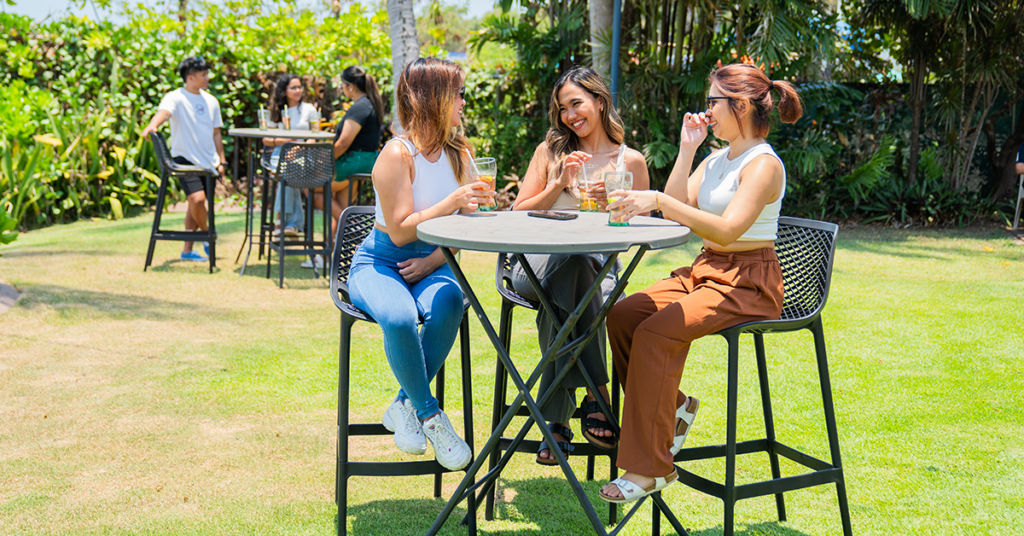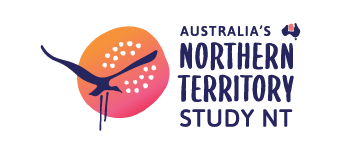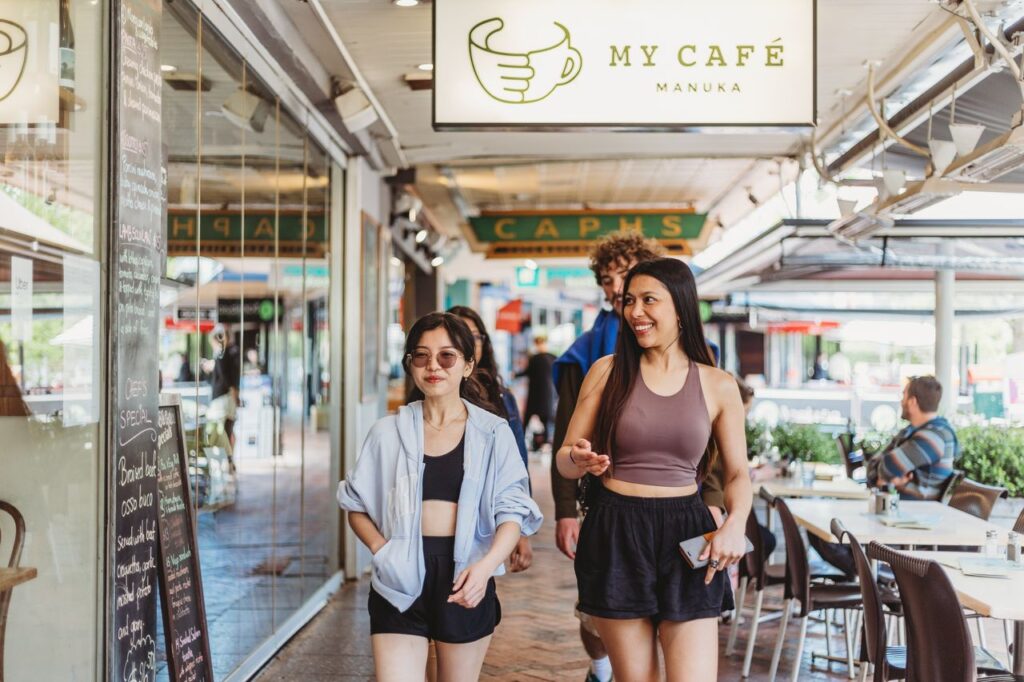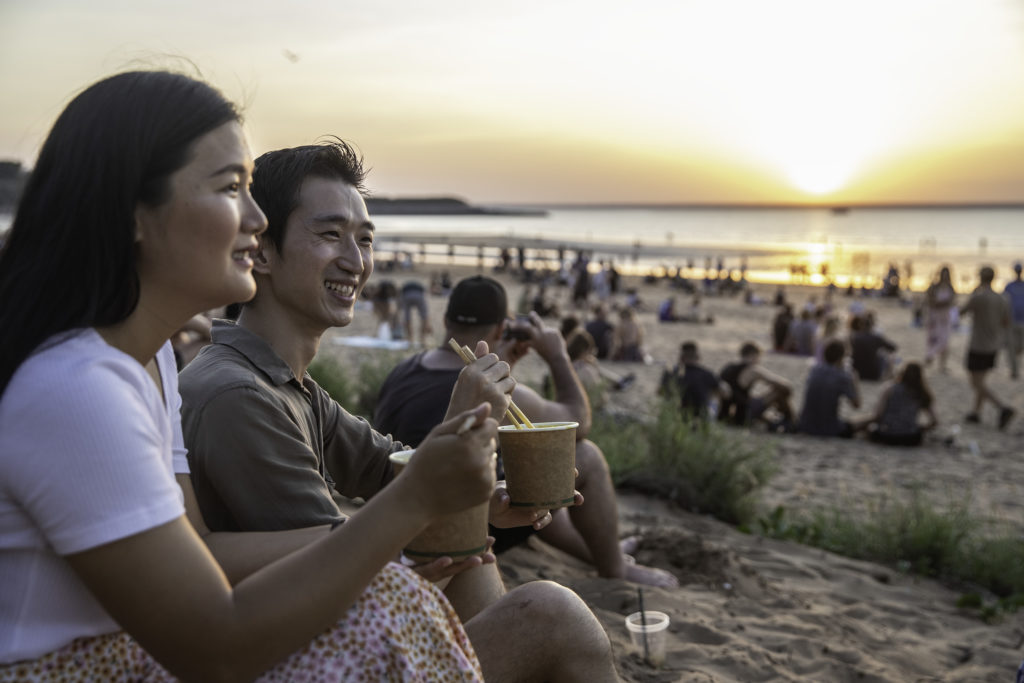Known for its stunning sunsets, incredible landscapes, and vibrant multiculturalism, Darwin also offers a relaxed and affordable lifestyle, making it an ideal study destination for international students.
Insider Guides spoke to Cong Do Le (Peter), an international student from Vietnam, who moved to Darwin to pursue a Master of Data Science at Charles Darwin University (CDU). He works part-time as a data analyst and as a casual tutor at CDU. In his spare time, he enjoys playing soccer and badminton, reading manga, and hanging out with friends.
Peter shares his insights on managing a student budget while studying and living in Darwin.
Money and finance
When it comes to managing your finances, there’s one crucial first step: opening an Australian bank account. In Darwin, you’ll find branches for Australia’s four major banks: NAB, Commonwealth Bank, Westpac, and ANZ. Other banks in the Northern Territory include Bendigo Bank, the People’s Choice Credit Union, Bank of Queensland (BOQ), and BankSA.
Setting up a bank account is easy and can often be done online before you arrive in Australia. For most bank account applications, you’ll need to provide your passport details, entry visa information, and tax residency details. Most major banks will also ask you for your Australian mobile number and the address where you’ll be living.
If you need financial support, there are various services you can access through your university or external organisations. The Australian Government Department of Education offers financial assistance to international students in the form of scholarships, grants, and bursaries. Study NT also offers several scholarships to assist international students with the move to Darwin.
Read more: Scholarships, grants and support for international students in the Northern Territory
Budgeting
Budgeting is super important for international students because of all the expenses like tuition fees, relocation costs, and new living expenses like accommodation, transport, food, and other necessities. Peter mentions that his major expenses are rent, food, and car fuel.
“I keep a tight rein on other costs like phone bills and entertainment to ensure I manage my finances well,” Peter explains.
The best way to manage your spending is by creating a daily and monthly budget.
Peter shares his method: “I use Microsoft Excel to track my daily expenses and income. I set weekly budgets, monitor my spending, and adjust as needed to stay on track.”
How much does it cost to live in Darwin?
Accommodation
Accommodation will range in pricing depending on your preferences. If you like living close to campus or with other international students, check out International House Darwin (IHD) and UniLodge Darwin. Long-term rooms at IHD range from $200 to $255 per week, whereas rooms at UniLodge cost between $222 to $277 per week. These prices include high-speed Wi-Fi, air conditioning, and utilities.
Peter lives in a private room in International House Darwin on the Casuarina campus. He says, “The rent includes utilities, and while I have my own space, I share common areas with other residents, which helps in reducing costs.”
If you’d rather rent a bedroom in a shared apartment, unit, or house, Charles Darwin University offers a private rental search tool, StudyStays. You can also use realestate.com.au, Domain, or Flatmates to view listings of rentals in Darwin. On average, it costs between $250 to $350 per week for a room in a private rental.
Be sure to check whether your weekly rent includes utility bills. You might have to pay extra for water, electricity and internet. On average, utilities cost $221 per month in Darwin.
Transport
When it comes to transport, getting around Darwin is easy and affordable. Bus routes cover the majority of Darwin, and international students can purchase single concession fares for just $1 or $7 per week. To travel on a bus in Darwin you need a valid ticket or a Tap and Ride card. These can be purchased on a bus using cash only, or at a bus interchange.
Peter shares, “During my first few months here, I purchased monthly bus tickets, which are quite affordable for students, to handle my transportation needs.”
If you have your own car, fuel costs around $40 to $50 per week, and parking in the city costs around $7 a day. Additionally, Darwin has plenty of walking and cycling paths, plus free bicycle enclosures and lockers to keep your belongings secure.
Groceries
It’s also important to consider the price of groceries when creating your budget. Darwin has popular Australian supermarkets, Woolworths, and Coles, as well as local farmers markets such as the Rapid Creek Markets on weekends.
“Shopping during closing times at supermarkets like Coles or Woolworths can lead to good discounts on items such as hot foods,” Peter suggests. “I always check their websites to see a list of half-priced items and note down the things I need before going shopping. For cheaper produce, local markets like Rapid Creek and Nightcliff are great options.”
To save money on food, Peter eats breakfast at home and prepares larger servings of dinner so he can eat leftovers for lunch. Peter spends around $80 to $120 on groceries each week, so his lunches and dinners average out to between $5 and $7 per meal.
Dining out and entertainment
Dining out and entertainment are two other expenses you should factor into your budget.
When dining out, Peter’s favourite meal is a bowl of grilled pork with vermicelli and veggies, or a bowl of beef pho. This would cost him between $18 and $20.
To save money on food, Peter recommends, “Participating in university and community events can help in saving money, as many provide free food. Additionally, I always check for student discounts and participate in low-cost entertainment options or activities.”
Peter goes to the cinema occasionally, where tickets cost between $15 and $20. Having a party with friends costs around $20 per person for food and drinks, and going for a picnic at the nearby Berry Springs costs each person around $10 to $30. He saves on activities like gaming, soccer, and swimming, which are free at International House Darwin.
Overall cost of living
The cost of living in Australia can vary greatly, so it’s important to be realistic about your own needs and preferences when designing your budget. You should have enough money to pay for your travel to Australia, 12 months of course fees, 12 months of living costs, and the costs of any dependents coming with you.
The cost of living in the Northern Territory is lower than Australia’s national average.
As of May 2024, international students must have at least AUD$29,710 in savings to meet the financial requirements for a student visa, according to the Department of Home Affairs.
Check out our Cost of Living Calculator for an idea of how much you’ll spend each week in Darwin.
Other tools and resources
Here are some tools and resources that can help you manage your budget:
- Discover rebates and benefits with the NT Government’s savings finder
- StudyNT’s international student handbook, which includes tips on how to avoid banking scams
- Money Smart budget planner
- Charles Darwin University’s information about fees and living expenses
- Our student discounts guide






